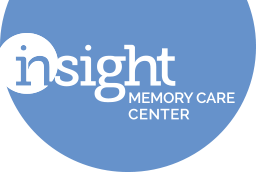Disparities in Dementia Care with Dr. Hill
Alzheimer’s and other dementia disproportionately affect older Black and Hispanic Americans compared to older Whites, according to the Alzheimer’s Association.
Dr. Carl V. Hill, chief diversity, equity, and inclusion officer for the Alzheimer’s Association, will join us to discuss how recent research ties poor social determinants of health and health equity issues to disproportionate rates of dementia in minority populations.
Join AARP Virginia and Insight Memory Care Center in-person in Fairfax, or online, as we learn more about the importance of diverse perspectives and participants in Alzheimer’s disease research – and what comes next to foster more inclusive research.
This hybrid session will be offered in-person in Fairfax and online for virtual participation. Please select your preferred option when registering.
In-Person
Insight Memory Care - Fairfax
3953 Pender Drive, Suite 100
Fairfax, VA 22030
Virtual
Virtual attendees will be emailed directions to log-in just before the event.
Presenter
Carl V. Hill, Ph.D., MPH, is responsible for developing cross-functional partnerships with organizations to advance diversity, equity and inclusion. As a result of his leadership, the Association has broadened its reach to previously underserved communities with partners such as the Thurgood Marshall College Fund, National Indian Council on Aging, National Black Nurses Association, National Association of Hispanic Nurses, African Methodist Episcopal Church and the Buddhist Tzu Chi Foundation.
Prior to joining the Association, he served as director, Office of Special Populations at the National Institutes on Aging (NIA). Throughout Dr. Hill’s six years in this role, he led the development of the NIA Health Disparities Research Framework, which stimulates studies focused on health disparities related to aging. He also directed the NIA Butler-Williams Scholars Program, which provides yearly training for early career investigators interested in aging research.
Resources
"I like the people, the programs, the support, the knowledge I gained as caregiver. That my wife flourished (and was improving, I thought) while she participated."




